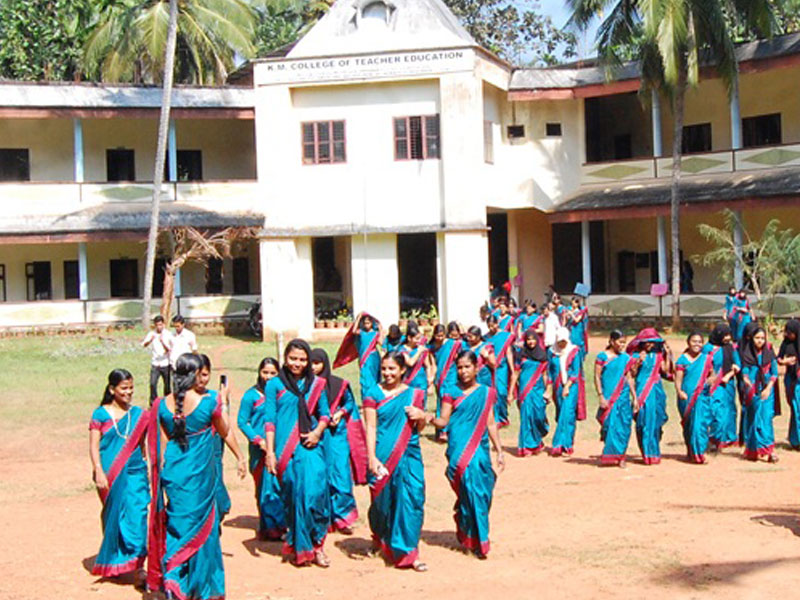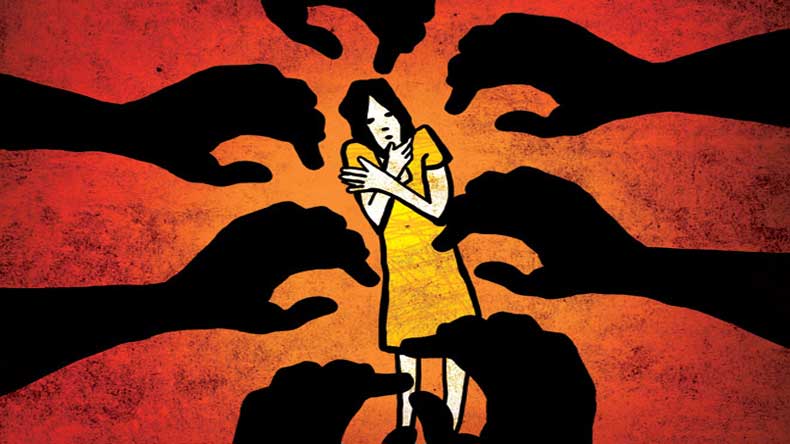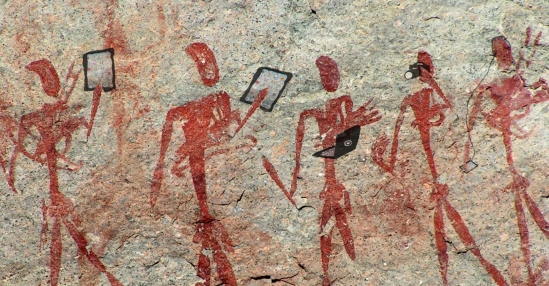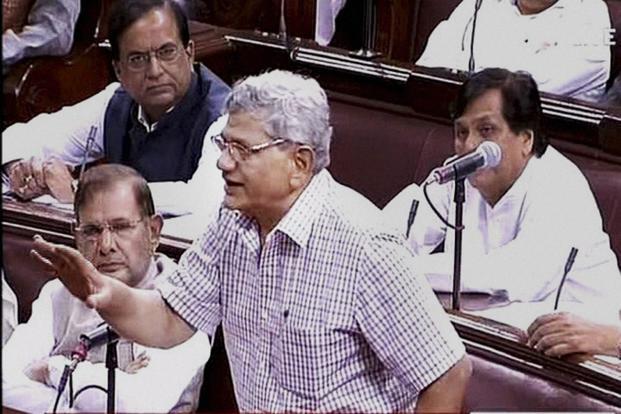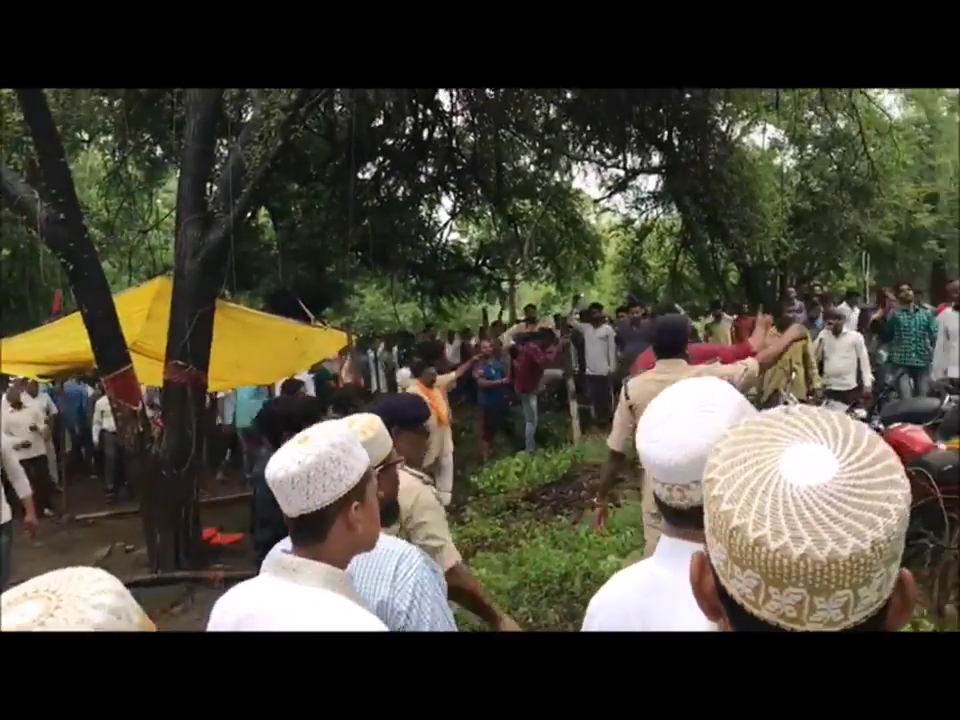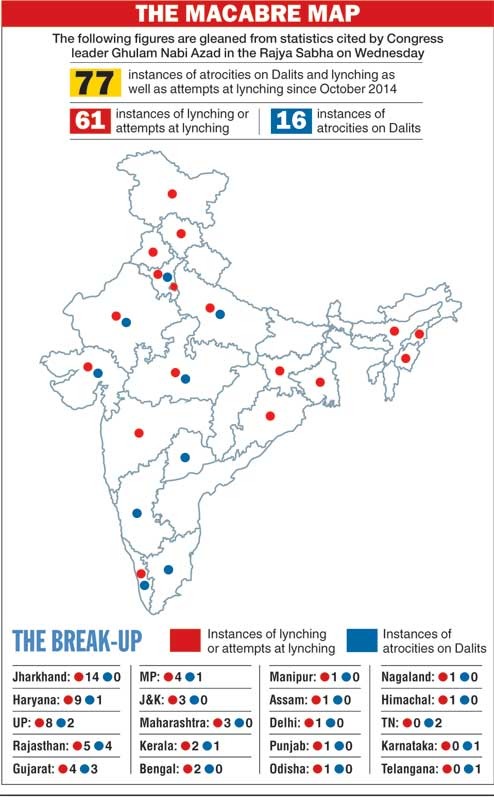Lynchings of Muslims and beatings of Dalits are happening because of an ideological project at work that is anti-thetical to the Indian Constitution…This third vision .. had a twin expression. You had the Muslim League talking of an Islamic India and you had the RSS talking of a Hindu Rashtra.
Private armies of ‘gau rakshaks should be banned by the Centre and States’: Sitaram Yechury, General Secretary of the CPI(M) in the Rajya Sabha, July 19, 2017

Image: PTI
Sitaram Yechury, Rajya Sabha member and general secretary of the CPI(M), in his impassioned speech on the brutal lynchings that have overcome the Indian Republic spoke at length on the history of the freedom struggle, the battle for a composite nationhood (where every citizen is equal irrespective of caste, community, gender or class) and how the RSS and Muslim League vision of nationhood differed from this, and still does. He said it is not enough for the Indian prime minister, Narendra Modi to ask the states to act but crucial for the Central and State Governments to ban the private armies that have been emboldened into taking law into their own hands. He quoted, also from the New York Times and the Financial Times to show how the reputation of this government is at an all time low.
The full text of the speech may be read here:
Sir, I am rising to speak with a very heavy heart and also in the background of what happened in the House just now. Sir, the sort of atmosphere that we have seen here does not augur well for our Parliamentary democracy. Since the problem is solved, I do not want to go into that.
But, actually, Sir, I am standing with my head hanging in shame.
Where has our Republic come to? Seventy years earlier, we had the pride in the world to say — while no other western democracy could have the courage to say — that from day one, we shall give universal suffrage for everybody in our country. Irrespective of their religious affiliation, irrespective of their caste, irrespective of their gender, we gave universal suffrage, which was a revolutionary step at that point of time, and, its basis was recognition of equality. It is that equality today that is being questioned and is being severely trampled upon through these instances of lynching.
My earlier speakers have listed various instances. I am not going to repeat them but just look at some of the gruesome tales. You have Akhlaq lynched at his dinner table because of the allegation that he was eating beef. It happened in 2015. Two youngsters in Latehar in Jharkhand were hanged because they were taking their cattle to a cattle fair. They were Muslim boys. You have Pehlu Khan, a dairy farmer, lynched in Alwar. In Una, there were dalits who were skinning the dead cows; that is the job, which, dalits, unfortunately are destined to do.You have them lynched. The boys were whipped and lynched. And that was filmed. We’re just talking about the social media. It was viral on the social media. You had the case of Junaid and his brothers. You had the case of Zafar who was killed by officials in Rajasthan because he asked them to stop filming a woman defecating in the open. Look at the level of intolerance and the gruesome tales that are taking place.
Sir, I recollect the words used by Rabindranath Tagore when he returned his Knighthood. What were the words that he used? He said, “Give me a voice of thunder, that I may hurl imprecations upon this cannibal whose gruesome hunger spares neither women nor children..”
That is the degree of dehumanisation that we have arrived at. Why we have arrived here is something that needs to be understood and debated. And we have to reach a conclusion on that in this august House.
Yes, we have international experiences of lynching. It comes down from medieval times during the Spanish Inquisition. How did they identify who’s a Muslim and who’s a Jew? By giving them a broth of soup which contained pork. Those who did not drink that soup were identified as Jews and Muslims and persecuted. One legacy that the Spanish Inquisition left behind was the triangular cap that was taken over by the Ku Klux Klan in the United States of America.
Till 1940, they were persecuting the blacks saying that they were inferior human beings. I am sure some of my old colleagues still remember the famous song by Billie Holiday which is titled “Strange fruit”. The song begins by saying, what is the strange fruit on the southern trees is with blood on the leaves. The ‘southern tree’ means Southern America in those days. And ‘the blood on the leaves’ means that it’s the black man hanged there. During the Spanish Inquisition what they had to identify Muslims and Jews by, “Who eats pork?” and you have “Who eats beef?” to identify who is a Hindu and who is a non-Hindu in India in 2017. Is this what my country is coming to?
And what about the private armies which are now roaming around? The Prime Minister has said that it is a State subject and that it is a law and order problem. These private armies have to be banned by a Central order. There should be a Central order to ban private armies who are taking law into their own hands. You had the Ku Klux Klan taking law into its own hands. You had black and brown shirts of Hitler and Mussolini taking law into their own hands. They cannot be banned by any one State Government. They will have to be banned by the State and that is the Central Government. That is the only way by which you can stop the private armies forcing to implement the law of the land for which they have no authority and that is why we immediately ask for a ban on these vigilante groups of all nature whether it be moral policing or whether it be cow vigilantism who are resorting to such actions. These groups must be banned by a Central order. And that is a demand my party would like to make to the Government.
But why is all this happening, Sir? This is not happening because we suddenly have a rise in the crime in the country. This is happening because of a certain ideological project that is at work and that is something we have to understand, Sir, you and I, and all of us have inherited our independent India and the Constitution. This was a product of a battle between three visions.
The mainstream vision during the freedom struggle was that of the Congress. They talked of future independent India being a secular democratic republic. We, the Left, had a difference with them. We said that we could not stop at that. We told them that they had to move forward to convert our political independence into economic independence and that could happen only under socialism, otherwise, the social democratic republic could itself become vulnerable. There was a third vision which had a twin expression. You had the Muslim League talking of an Islamic India and you had the RSS talking of a Hindu Rashtra.
Both of them wanted the country, independent India, to be a theocracy guided by the religious affiliations of its people. Unfortunately, the Muslim League succeeded aibly aided by the British and the country was partitioned. For my generation, even for me, all that is history because we were born after that. …(Interruptions)… That is apart. But the point is, religious affiliations being the basis for statehood, is at variance with the other two visions that were there of – a secular democratic republic.
After Independence, India became a secular democratic country. Mahatma Gandhi was assassinated out of that anger of not facilitating the ‘hindu rashtra’ when that assassination happened, after that, there was a ban on the RSS that was initiated by Sardar Patel – of all the people, Sardar Patel! What did the ban order say, which he drafted himself on the 4th of February, 1948?
You have Akhlaq lynched at his dinner table because of the allegation that he was eating beef. It happened in 2015. Two youngsters in Latehar in Jharkhand were hanged because they were taking their cattle to a cattle fair. They were Muslim boys. You have Pehlu Khan, a dairy farmer, lynched in Alwar. In Una, there were dalits who were skinning the dead cows; that is the job, which, dalits, unfortunately are destined to do.You have them lynched. The boys were whipped and lynched. And that was filmed. We’re just talking about the social media. It was viral on the social media. You had the case of Junaid and his brothers. You had the case of Zafar who was killed by officials in Rajasthan because he asked them to stop filming a woman defecating in the open. Look at the level of intolerance and the gruesome tales that are taking place.
The Sardar says – I quote – “The objectionable and harmful activities of the Sangh have however continued unabated and the cult of violence sponsored and inspired by the activities of the Sangh has claimed many victims, the latest and the most precious to fall was Gandhiji himself.” It is the cult of violence that is spread. I am not saying what some say that all these gau rakshaks are RSS people. Some are saying they are anti-socials, they are criminals. The Prime Minister has said so. They are criminals by the night and they may be something else by the day.
But why & how are they getting this courage to act? It is because of the spread of this cult of violence. That is what has to be contained. But the battle of the visions did not stop there after Gandhiji’s assassination.
Unfortunately, many were lulled into submission thinking that that was stopped then. But, no, subsequently, what have we seen? It is the brand of nationalism that was purviewed even after Mahatma’s assassination, even after adopting our Constitution. Here, Sir, I quote to you what the RSS chief at that point of time said. I quote, “What is the attitude of those who have been converted to Islam or Christianity? They are born in this land, no doubt. But are they true to its salt? Are they grateful towards this land which has brought them up? Do they feel that they are the children of this land and its tradition and to serve it is their great good fortune? Do they feel it a duty to serve her? No! Together with the change in the faith, gone are the spirit of love and devotion for the nation.”
If these are the values that you are spreading ideologically after Independence and after the Constitution, what does this mean? It directly contradicts the right to equality, which we have provided in our Constitution, irrespective of caste, creed or sex. That’s the word used in the Constitution. It directly contradicts that.
This is the ideological position that has risen to these levels whereby nationalism is only equated as Hindu nationalism or Hindutva nationalism. This is not my Bharat Mata which I know of. My Bharat Mata has given births to Muslims, Christians, Parsis, Buddhists, Jains and to atheists. This is not that Bharat Mata. When we say ‘Bharat Mata ki jai’, we say ‘Bharat Mata ki jai’ for all these people. But, at the same time, we say ‘Jai Hind’. Why is Jai Hind not a patriotic slogan and why is Bharat Mata ki jai alone a patriotic slogan? Is there no insidious meaning in that?
…(Interruptions)… What about Bhagat Singh’s Inquilab Zindabad? Is that not patriotic? Is Bhagat Singh not patriotic? …(Interruptions)… Then, do not distinguish on the basis of what slogans are shouted. A patriot is a patriot. It’s an Indian patriot. That is why, that Indian patriotism is what we are standing for, not for Hindutva patriotism or Hindutva nationalism.
It is that Indian nationalism which has to be nurtured and that is our duty, and because of not nurturing it you have these lynch mobs here today. You have these lynch mobs which come out of that hatred.
Such nationalism, unfortunately, I do not feel very good saying this but I want to bring to the notice of this august House that there was a nationalism of this type that was also there, that the world had seen, and that was Hitler’s nationalism. What was Hitler’s nationalism, Sir? He talked of German nationalism as a gigantic national organism. He talked of it as a body. If German nationalism has to be stronger – I am quoting from the Mein Kampf that he had written – this gigantic organism has to be rid of all the germs that are alien to that organism. Then, to do so, what does he say? I quote from Mein Kampf: “This urge for maintenance of unmixed breed, (read Hindutva,) which is a phenomenon that prevails throughout the whole of the natural world, results not only in sharply defined outward distinction between one species and another.
The struggle for daily livelihood leaves behind in the ruck everything that is weak or diseased or wavering.” If this weak or diseased or the wavering are not removed, this organism of German nationalism cannot be strengthened and that is why he says “Since the inferior always outnumber the superior, the former would always increase more rapidly.” (Recollect the RSS propaganda of multiplication of the Muslim race versus the Hindu race.)” They will increase more rapidly if they possessed the same capacity for survival and for procreation of their kind. The final consequence would be that the best in quality would be forced to recede in the background. Therefore, a corrective measure in favour of better quality must intervene.”
Weed away all these elements. That is how you strengthen German nationalism. That was Hitler’s nationalism. Today, ‘weed away all non-Hindus, you strengthen Hindutva nationalism’. That is the philosophy that is prevailing and that is rising in our country. It is not a Hindu right. It is Hindutva nationalism. It is this, that is giving sustenance for such groups to continue to exercise and do what they are doing. This vigilantism, that we are seeing today, is a part of this larger effort so it is no longer just a fringe doing it. It is not some fringe or some anti-social elements or some criminals but what the Sardar(Patel) himself said that the cult of violence spread by these, is generating all these elements into action, into attacking the very foundations of our Constitutional Republican order where that basic Right to Equality is being denied. That basic right to faith and propagate each own’s faith is being denied. As this is happening, you are undermining this very Constitutional order. That is why the fight against this lynching and vigilante groups is essential to maintain our Constitutional order.
Let me tell you — this is something not only me saying it — the Government’s favourites, that is, the foreign media, it is the foreign media, Sir — I quote to you The New York Times which is kept in very high esteem by this Government. What does The New York Times writes in its editorial two-three days ago? “This might seem – (this means these lynch attacks) — like merely a farcical move by Hindu fanatics, if it were not so in line with much else that is happening in Mr. Modi’s India, and if implications for India’s democracy weren’t so chilling! But this is where Mr. Modi has brought the nation to as it prepares to celebrate 70 years of independence on Aug. 15.” It is The New York Times editorial.
What does this week-end’s Financial Times say, Sir ? The Prime Minister of this Government “must stop pandering to the Hindu right. This policy comes against the backdrop of an increase in attacks by Hindu vigilantes on those suspected of trading or consuming beef; an estimated 28 or more people have been killed in such attacks so far….”
This is your international standing today. And, they are recognizing what is happening in our country is something that is completely antithetical to the entire constitutional values and orders that we have given ourselves.
Sir, you, sitting on that Chair, and all of us have come with an oath on this Constitution. We have come with an oath on this Constitution which gives me एक धम«िनरपे© जनतंĝ का गणतंĝ, a Secular Democratic Republic, that is, Bharat. Now, that is under question today and that is why, I say that what is happening is not my Mother India. What did my Mother India teach me, Sir, when we all grew up and what it continues to teach me today? What did Swami Vivekananda tell us, ‘Like different rivers flow in different directions, in different courses to merge in the same ocean, like that, different human beings through their own faiths or even being an atheist, all merge into one ocean of humanity.
MR. DEPUTY CHAIRMAN: Yes, that is what Rig-Veda says, “एकं सिǎĢा बहुधा वदȎÂत।
SHRI SITARAM YECHURY: Yes, Rig-Veda tells you that and even your Bhagawad Gita tells you when in the Vishnu Avatar, Krishna comes down and says, “I will protect every human being in every faith that he believes in.” That is what my Mother India teaches me.
So, will you tell me now what I should wear? Will you tell me who will be my friend? Will you tell me what I should eat? Will you tell me,” You are killing cows and I am not”? Now, India is the second largest industry of beef exports in the world, where more than five million people are working there. All of them are what? ‘Antinational’? Are they enemies of the nation? So, that is where, please, at least, if not us—you don’t take our opinion seriously—but you, at least, take the opinion of the G20 that you consider serious or at least, take the opinion of U.S.A. where you have been five times in three years. Take the opinion of New York Times’ editorial. Take what they are saying.
The Prime Minister concentrates on reforms, economic policies and not on this Hindutva agenda. So, stop the country from moving towards a Hindu right. So, these lynchings, Sir, are not isolated incidents of law and order. These lynchings are part of an ideological construct that wants to undermine the secular democratic character of modern India which is there in our Constitution and replace it by whatever they call by their concept of what is called the ‘Hindutva Rashtra’. That is why, this is a serious matter. Sir, that is why, I am beseeching you. Immediately, ban all these cow vigilante groups; ban your anti-Romeo squads.
Some of us have the fortune of being educated in our mother tongue as well as in English but why do you invoke poor Shakespeare into your campaign? Call them by some other name. Why ‘anti-Romeo’? Why do you insult Shakespeare? Why do you call him into this? Anyway, that is an aside. …(Interruptions)… Apart from that, Sir, these groups must be legally banned and let us together build our country in the direction we want to take.
Let us discuss; let us see what is there, Discuss our differences. So, finally, I only beseech all of you, all of us have our beliefs, our ideological convictions ; all of us have our faiths; all of us who are atheists like me.
We have only to tell you, Sir, atheism in Indian ‘parampara’ is as old as Hinduism itself. Charvaka was your first atheist, a Brahman atheist and, therefore, don’t predecide that one is anti-Indian by being an atheist.
We all have our rights. Let us all together stop this degeneration in our country. That is my message to the House and my appeal to the Government to immediately ban these vigilante organizations. (Ends)
(This is the full text, unedited of the speech made by Comrade Sitaram Yechury in Rajya sabha on July 19, 2017. The speech was made during a Short Duration Discussion Arising Out of Reported Increase in Incidents of Lynching and Atrocities on Minorities)
